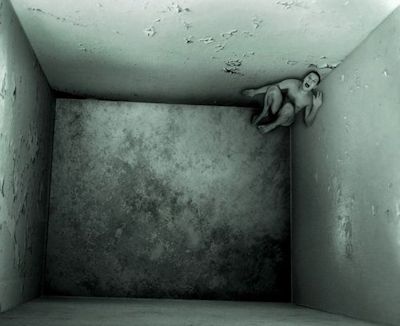
(2-5-18) Want to reduce the suffering of individuals with serious mental illnesses held in Virginia jails and prisons?
Send an email or call state Senator Ryan T. McDougle (R) – Senate District 4), at district04@senate.virginia.gov (804) 698-7504 and urge him to support Senate Bill No. 801 currently in his Rules Committee.
Introduced by Virginia state Senator Barbara Favola, the legislation would require the Virginia Department of Corrections and the Department of Behavioral Health and Developmental Services to study and devise plans to reduce the use of solitary confinement for prisoners who suffer from serious mental illnesses.
The two state agencies would also be tasked to develop strategies ensuring “that prisoners with serious mental illness (SMIs) receive necessary and appropriate treatment delivered with a focus on the patient.”
 Inmates are typically held in 80-square-foot cells for 23 hours a day, seven days a week. They are supposed to receive one hour a day of recreation five times a week, but those exercises are done inside a 96-square-foot, fenced area – basically a large cage. Inmates eat alone in their cells and, by design, have little, if any, interaction with others.
Inmates are typically held in 80-square-foot cells for 23 hours a day, seven days a week. They are supposed to receive one hour a day of recreation five times a week, but those exercises are done inside a 96-square-foot, fenced area – basically a large cage. Inmates eat alone in their cells and, by design, have little, if any, interaction with others.
You can imagine how those conditions compound problems for someone with a serious mental illness. (Please share your personal stories on my Facebook page if you or a loved one has been held in such conditions.)
The Journal of the American Academy of Psychiatry and Law noted:
Many of the prisoners subjected to isolation, which can extend for years, have serious mental illness, and the conditions of solitary confinement can exacerbate their symptoms or provoke recurrence.
An isolation cell that I recently visited in a Virginia jail was windowless with a solid steel door and a round hole in the floor that could be flushed whenever a correctional officer noticed human waste on its grate. Except for the prisoner locked inside, it was empty – a concrete tomb.
I’ve written before about how harmful and cruel solitary confinement is, especially for prisoners with serious mental illnesses. And I am proud that I was able to add a recommendation with my colleagues support to the first ISMICC – Interdepartmental Serious Mental Illness and Serious Emotional Disturbance Committee – 2017 report to Congress about stopping the practice:
ISMICC RECOMMENDATION 4.7. Strictly limit or eliminate the use of solitary confinement, seclusion, restraint, or other forms of restrictive housing for people with SMI and SED.
I find it especially regrettably that isolation cells are commonly used inside the federal Bureau of Prisons. The Office of Inspector General found that on average, BOP prisoners with serious mental illnesses were confined about 896 consecutive days, or about 29 months, in so-called “special management units (SMUs)” between 2008 and 2015. Incredibly, 13% of these inmates with serious mental illness were released directly into the community after spending an average of 29 consecutive months in isolation cells.
As long as I am permitted to serve on ISMICC, I will push for an end of long term solitary confinement for prisoners with serious mental illnesses and emotional disturbances.
Virginia Senator Barbara Favola’s bill one in a long list of mental health/opioid/substance abuse legislation. But most never make it out of committees. Such was the case of two bills that the Treatment Advocacy Center was backing that involved broadening mandatory outpatient treatment (MOT.) Introduced on January 1st, both were killed in committee thirty days later. (You can track Virginia legislation here.)
Virginia’s constitution states its General Assembly shall meet annually for a maximum of 60 days in even-numbered years and 30 days in odd-numbered years, unless extended by a two-thirds vote of both houses. That’s doesn’t give you much time to act.
(Another bill that I am monitoring – House Bill 793- would permit nurse practitioners to provide services without being attached to a doctor’s office. I happen to have an excellent one so I’m curious about this bill’s fate. But it has a group lobbying for it. The seriously mentally ill don’t have such a group!)
Sen. Favola’s bill to reduce solitary confinement was referred to the Senate Committee on Rules on January 10th. I don’t want it to die there. Please sent an email to Senator Ryan T. McDougle (R) – Senate District 4) at district04@senate.virginia.gov
Other committee members and their contact information is listed here: – Norment, Hanger, Newman, Ruff, Wagner, Obenshain, Vogel, Stuart, Stanley, Carrico, Reeves, Saslaw,Locke, Howell
Let’s take a step toward ending solitary confinement of the seriously mentally ill in Virginia.



